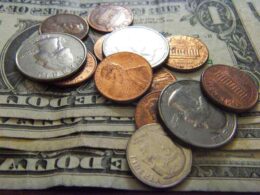Deposit machines are modern banking devices that allow you to deposit cash conveniently and quickly. Deposit machines operate on the basis of a network of ATMs, which allows access to the service in many places. Currently, all banks use deposit machines and they are available in most cities.
What is a deposit machine?
Adeposit machine is a special ATM that allows us to make payments with cash or credit cards. It is a device equipped with a display, keypad and ports for entering cash. Deposit machines are widely used in banks, stores, travel agencies, lotteries, etc. Deposit machines are especially useful for people who frequently make cash payments and do not want to stand in line at the bank.
How does a deposit machine work?
Using a deposit machine is very simple. All you have to do is select the deposit machine and enter the account number to which you want to deposit cash, then follow the instructions on the screen. First, enter the amount you want to deposit and then insert the appropriate amount of coins and bills. The deposit machine will calculate the total amount of cash you are depositing and display it on the screen. Then click “confirm” to complete the transaction.
Once the deposit process is complete, the deposit machine will send a confirmation to your bank account, which you can also pick up in paper form. This is especially convenient for people who do not have access to the Internet, as they do not have to go to the bank to deposit cash.
Is it safe to use a deposit machine?
Using a deposit machine can be very convenient and fast – you can deposit money anywhere, at any time, and it’s all convenient with a few clicks. But is it safe?
Security is of course paramount when it comes to depositing money. The network of deposit machines is secured by a number of safeguards, including data encryption and appropriate security policies. All deposit machines are also monitored and controlled by secure systems that are constantly being improved to ensure the highest possible level of security.
The use of deposit machines is also safe thanks to the security rules that banks have put in place. For example, deposit machines require users to enter relevant personal information, such as account number, password or PIN. In addition, no more money can be withdrawn than is available in the account.
In addition, deposit machines are designed to prevent data leakage. For example, deposit machines use encryption to prevent access to personal and transaction information. In addition, some deposit machines use facial or fingerprint scanning to provide additional protection.
Deposit machines – commissions
As for the commissions for using a deposit machine, they are usually charged per transaction. The commissions for deposits depend on the bank, as well as what you deposit. In some banks, commissions are fixed and range from 2 to 5 zlotys per transaction. Some banks also charge a commission on the amount deposited, which can be higher, ranging from 0.02% to 0.5% of the transaction amount.
In addition, some banks set a limit on the cash deposits that can be made through a deposit machine. Banks often set a deposit limit of 5,000 zlotys or less, which means that a larger amount cannot be deposited. Some banks only allow cash deposits up to a certain amount, and larger amounts must be deposited at the bank.




